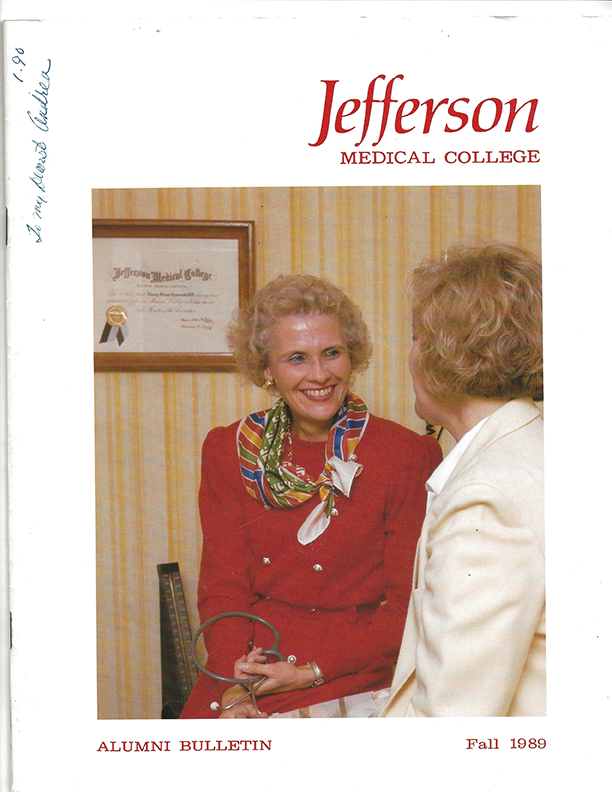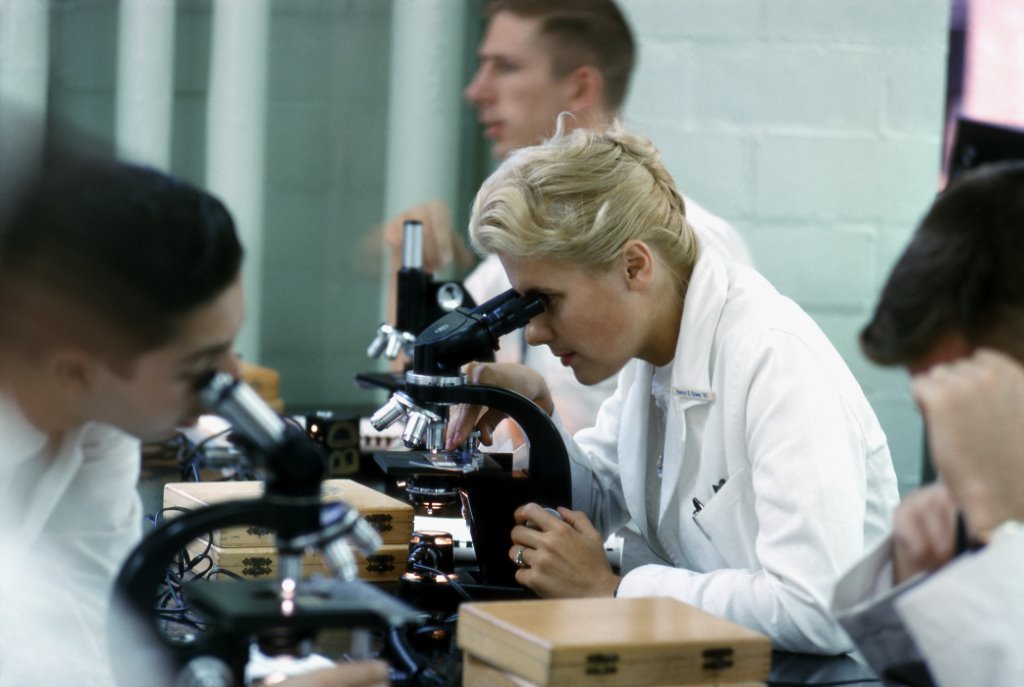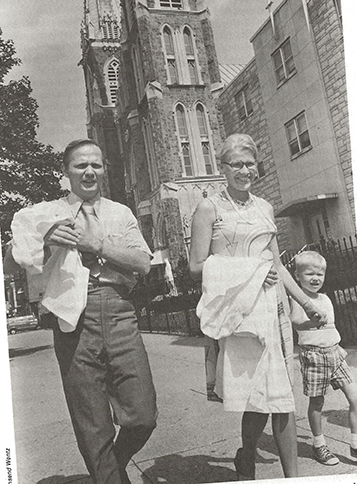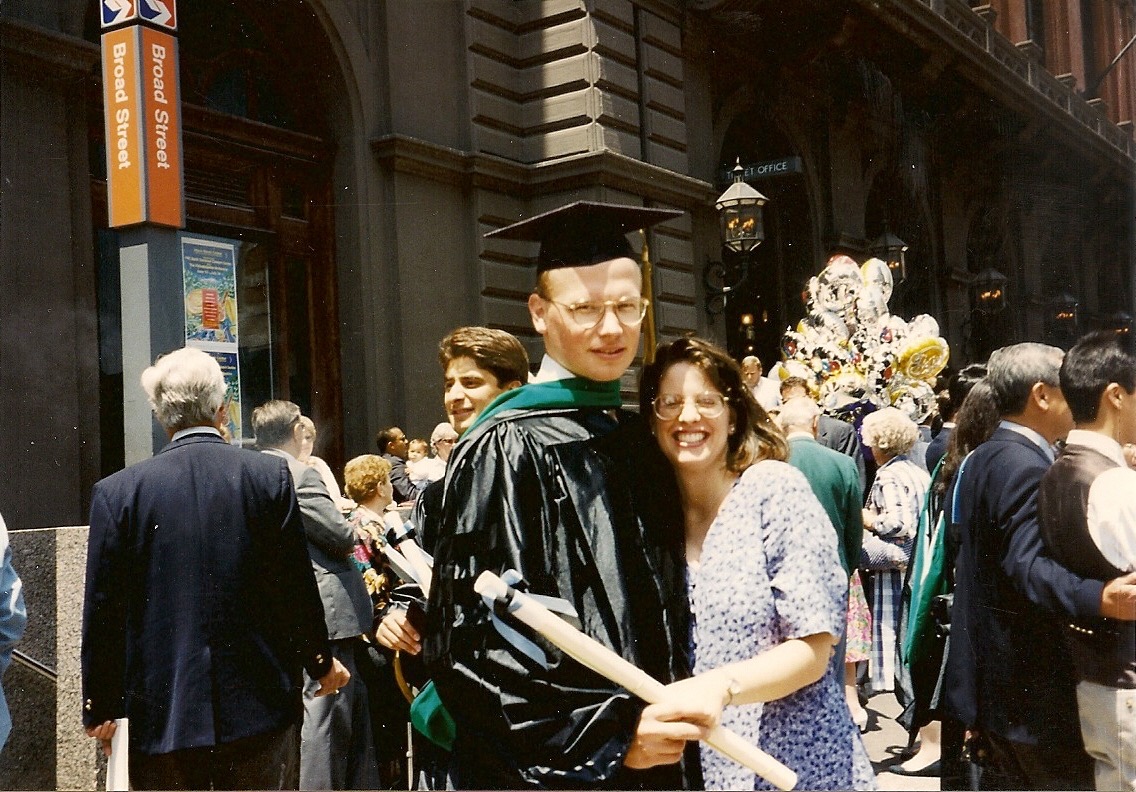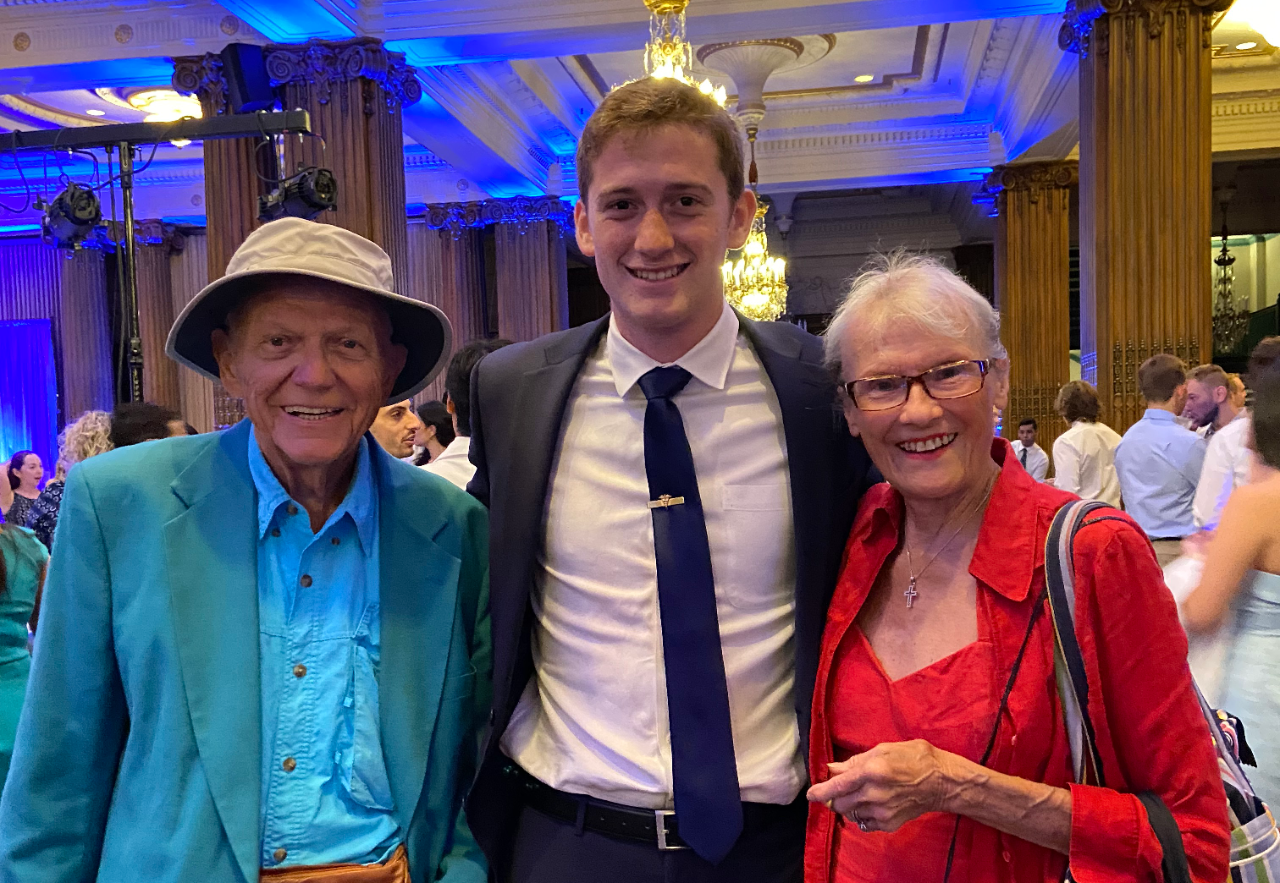In 2025, Jefferson’s Class of 1965 will celebrate its 60th anniversary. The occasion will highlight this singular class’s distinction as the first in Jefferson’s storied history to include women. Alumna Nancy Czarnecki, MD ’65, was the first woman to matriculate to—and graduate from—the medical college.
“Back in the early ’60s, some of the major universities in the Philadelphia area did not accept women,” Nancy says.
What a difference six decades make.
According to a 2023 report from the Association of American Medical Colleges, in 2019, for the first time, women comprised the majority of medical school applicants, matriculants/first-time enrollees, and total enrollees.
Nancy’s path to medical school was influenced by a desire to do more. During her college years as a med tech at Temple University, her beloved grandfather developed severe pain. She felt helpless. She wanted more. When her mother read that Jefferson, known for its clinical skills and doctor/patient relationships, was accepting women for the first time, she jumped at the chance to apply. “I thought, I have to learn to do more for him,” she says.
Nancy’s former Temple classmate, a Jefferson first-year medical student, invited her to visit him at the anatomy building. “There were all these men in white jackets, students hovered over their cadavers,” she recounts. “It became an uproar. There was a hand on my shoulder, and I turned around. Dr. Michaels, a prosector in anatomy, said, ‘Lady, do you know you’re causing pandemonium in here?’ But he had a twinkle in his eye, and somehow, I knew I was going to love this place.”
Nancy and seven other women joined Jefferson in 1961. “We bonded, and we’re still in touch,” she says. “We would talk about classes, our backgrounds, and stuck together as women normally do. We had a lot of fun and were accepted well by most of the faculty and the guys in the class. Most came from co-ed schools, so it was no big deal. I thought we would get a lot more resistance from the professors, but outside of little light jokes, it was a great experience.”
Following medical school, Nancy went right into family practice. “At the time, you could go into family practice without residency,” she shares. “I was board certified, and you were grandfathered in if you passed the exams, which I did.”
